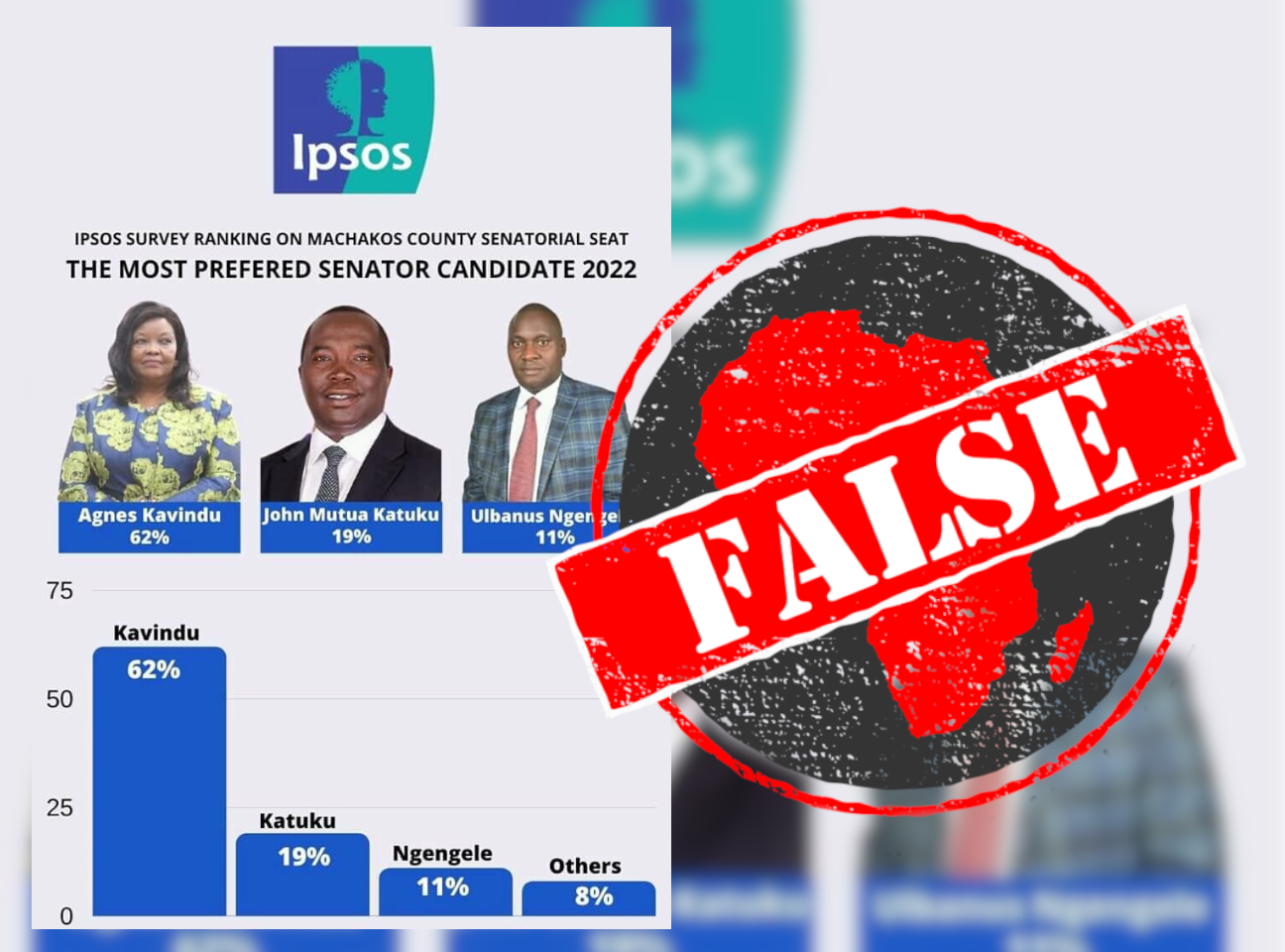On 18 March 2021 Kenya’s Machakos county is set to hold a senatorial by-election. A graphic posted on Facebook with the logo of research and polling company Ipsos seems to reveal the frontrunners.
Its header reads: “Ipsos survey ranking on Machakos county senatorial seat”.
The graphic ranks Agnes Kavindu of Wiper Party the most popular candidate, with 62%. She is followed by John Mutua Katuku of Maendeleo Chap Chap Party with 19%, Ulbanus Ngengele of the United Democratic Alliance with 11%, while “others” have 8%.
But did an Ipsos poll produce these numbers? We checked.

‘Source of data unknown’
The agency usually releases its findings to the media, but no such survey has yet been reported.
On 26 January Ipsos posted the graphic on Facebook and Twitter, stamped “FAKE”.
— Ipsos in Kenya (@IpsosKe) January 26, 2021
“The source of this data is unknown to Ipsos,” text in the stamp reads.
Republish our content for free
For publishers: what to do if your post is rated false
A fact-checker has rated your Facebook or Instagram post as “false”, “altered”, “partly false” or “missing context”. This could have serious consequences. What do you do?
Click on our guide for the steps you should follow.
Publishers guideAfrica Check teams up with Facebook
Africa Check is a partner in Meta's third-party fact-checking programme to help stop the spread of false information on social media.
The content we rate as “false” will be downgraded on Facebook and Instagram. This means fewer people will see it.
You can also help identify false information on Facebook. This guide explains how.


Add new comment